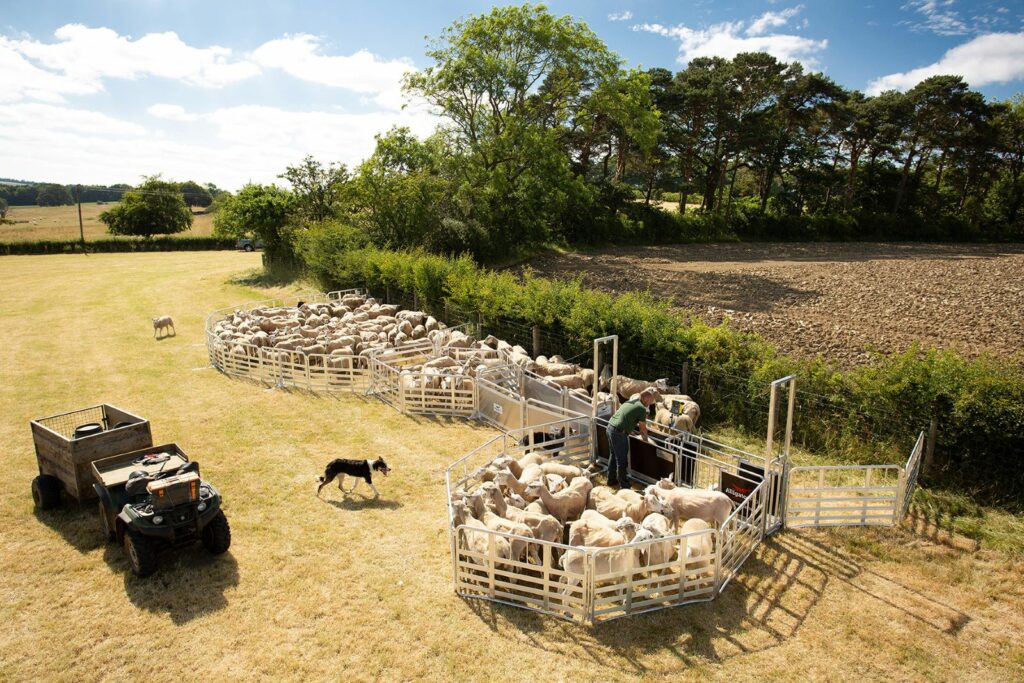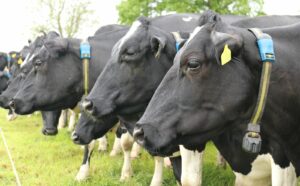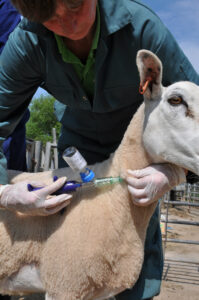New schemes launched to help livestock farmers offset rising costs
14th March 2023
The latest round of the Rural Payments Agency’s (RPA) Farming Equipment and Technology Fund (FETF) offers grant funding for a range of equipment, including mobile sheep handling and herd monitoring systems, with MSD Animal Health also offering support to improve flock productivity.

Mobile sheep handling systems such as the Alligator Pro are eligible for grant funding in England and Wales.
According to details published by the RPA on 9th February, grants under the second round of FETF will be issued for equipment in two main categories: Productivity and Slurry items (Annex 3) and Animal Health and Welfare items (Annex 4).
Within Annex 4, mobile sheep handling systems (FETF69*) capable of handling a minimum of 250 sheep away from the farm’s main holding (and consisting of at least 20 hurdles, a drafting and dosing race and the ability to fit a footbath) are eligible for grant funding to the amount of £3,568. These include units manufactured by Allflex and Prattley.
To be eligible for grant funding, mobile handling systems must be trailer mounted and of all-metal construction. The Alligator, Alligator Pro and Prattley ranges all fall within the required standards and are therefore available at a reduced price through the funding scheme.
Annex 4 also provides grant funding for sheep handlers (up to £1,166), automatic weighing and drafting crates (£5,478 funding), EID panel readers (£597 funding) and electronic weigh crates (£1,020 funding).
Farmers in Wales can also access grants similar to FETF through the Welsh Government’s small grants efficiency scheme.
Beverley Taylor, trade solutions marketing manager for MSD Animal Health, commented: “With farm margins being squeezed by high production costs, it comes as welcome relief that farmers are able to offset around 40% of the cost of key items of equipment through the second round of the Government’s Farming Equipment and Technology Fund.
“It is also reassuring to note that equipment which improves the health and welfare of animals – such as dedicated safe handling systems – has been prioritised within the latest round of grants.”
Making equipment such as sheep handling units more affordable will help farmers better understand and manage growth rates, identify under-performing animals, and ensure stock are finished safely and at the optimum weight, she added.
Moreover, the additional efficiency will make for more environmentally sustainable sheep farming systems in the long run, Ms Taylor explained.
Supporting innovation in the livestock sector
Through the latest round of FETF, livestock farmers in England can also apply to fund herd monitoring systems such as SenseHub and Dataflow II from MSD Animal Health. What’s more, farmers now have the option to use the company’s fertility and health monitoring systems on a subscription basis with no upfront costs, further increasing affordability.
Within Annex 3 of the scheme, heat detection systems (FETF90*) and their associated ear tags and neck collars (FETF91*) are eligible for grant funding to the amounts of £740 and £29 (per tag or collar) respectively.
The costs of investing in a herd monitoring system can also be spread with MSD Animal Health’s simple and affordable ‘GO’ subscription model, available for all SenseHub and Dataflow II application plans.

The GO subscription model enables dairy and beef cows to be monitored for fertility and health purposes with zero upfront costs.
GO gives users access to all the necessary equipment, installation, tags and applications for a single monthly fee and allows full flexibility as farmers’ needs change. The service can be used to monitor multiple groups of animals with MSD Animal Health’s intelligent ear tags and/or neck collars and includes priority customer support and training.
Paul Mitcham, Nationals Sales Manager (Monitoring) MSD Animla Health, commented: “The GO package highlights MSD Animal Health’s commitment to provide a fully supported, service-based solution to herd improvement by offering dairy and beef farmers an affordable, simple and flexible route into the use of herd monitoring technologies.
“All tags, software and ancillary hardware are also automatically updated as and when new upgrades are launched, with farmers therefore able to enjoy all the benefits of herd monitoring – improved herd fertility, enhanced productivity and fewer health issues – without any of the upfront costs, servicing expenses or renewal charges associated with more traditional purchasing models,” he added.
For those who prefer to purchase their monitoring equipment upfront, SenseHub and Dataflow II will remain available to purchase via MSD Animal Health’s ‘UP’ purchase scheme.
For more information and to apply for funding, visit the government website here.
Reducing the risk of low productivity
To help sheep farmers prevent unwanted flock health issues, MSD Animal Health has recently launched its FlockCheck diagnostic scheme, through which producers in England, Scotland and Wales can ask their vet to blood test their flock for exposure to toxoplasmosis and enzootic abortion (EAE).
Ewe reproductive failure, neonatal lamb disease and mortality are the three biggest limiting factors to flock productivity, with toxoplasmosis and enzootic abortion continuing to be among the most common causes.
Therefore, farmers experiencing more than 2% of their flock being barren or aborting this lambing season are being encouraged to contact their vet to take advantage of the subsidised diagnostic scheme.
FlockCheck allows vets to identify whether toxoplasmosis or EAE (or both) are likely to have been involved in any aborted lamb losses, barren ewes or numbers of weak, sickly lambs, aiding the decision for pre-tupping vaccination programmes. This year’s scheme commenced on 1st February and will run until 30th June 2023.
MSD Animal Health veterinary adviser Dr Kat Baxter-Smith recommends farmers use the scheme to request blood samples from six to eight aborted, unvaccinated ewes, or from barren ewes or ones that have produced weakly lambs.
She added that blood tests have proven to be an extremely useful flock diagnostic tool in terms of helping to identify the potential presence of any key underlying productivity limiting disease.
According to Dr Baxter-Smith, abortion caused by either toxoplasmosis or EAE can be responsible for reducing the number of lambs per ewes mated, which can increase workload and stress during lambing. Profit may also be reduced significantly, however, FlockCheck can help farmers improve their flock’s overall economic performance.

Toxoplasmosis can be controlled effectively by a simple vaccination regime before ewes go to the ram later in the year.
“(…) Toxoplasmosis, caused by infection with the Toxoplasma gondii parasite, does not just cause abortion. It is also the main infectious cause of early embryo loss in sheep and a very common cause of barren ewes or weak, sickly live lambs.
“It is likely that almost all flocks in Great Britain have been in contact with this endemic parasite, which means all breeding sheep should be considered at risk.”
Dr Baxter-Smith explained the primary reason for such high levels of the disease is that sheep can become infected very easily.
“Sheep pick up the toxoplasma parasite from the environment and so normal biosecurity measures are not enough to control the disease.
“Fortunately, the disease can be controlled effectively by a simple vaccination regime. In reality, every ewe should ideally be vaccinated before she breeds because of the widespread disease threat and the significant financial losses,” she said.
Sheep farmers interested in taking advantage of this industry support from MSD Animal Health should contact their local practice as soon as possible.
